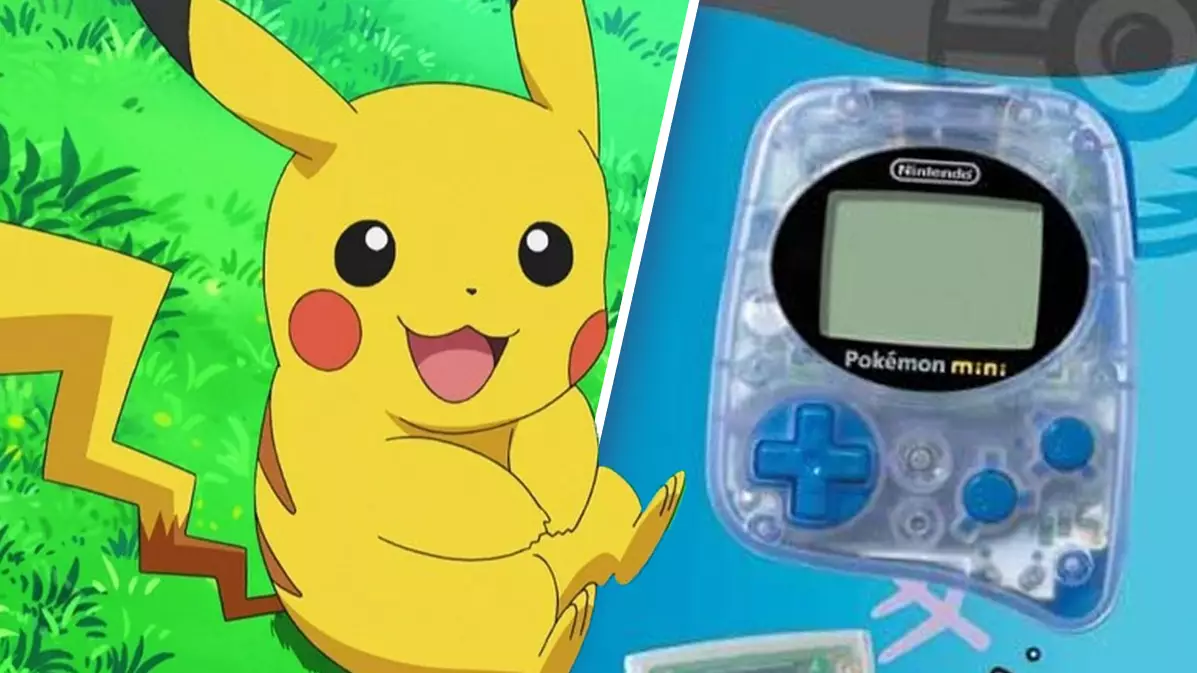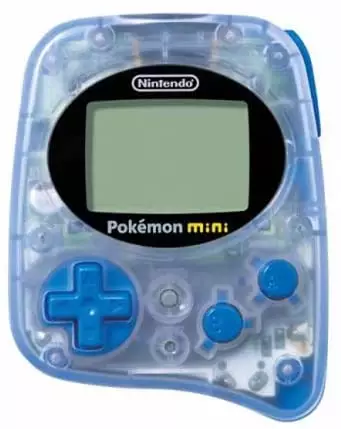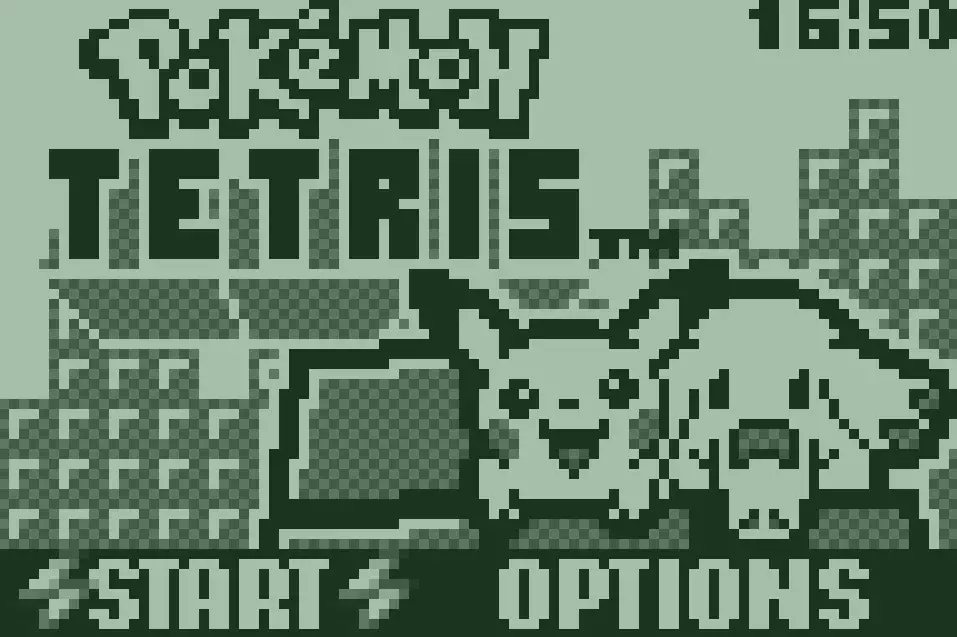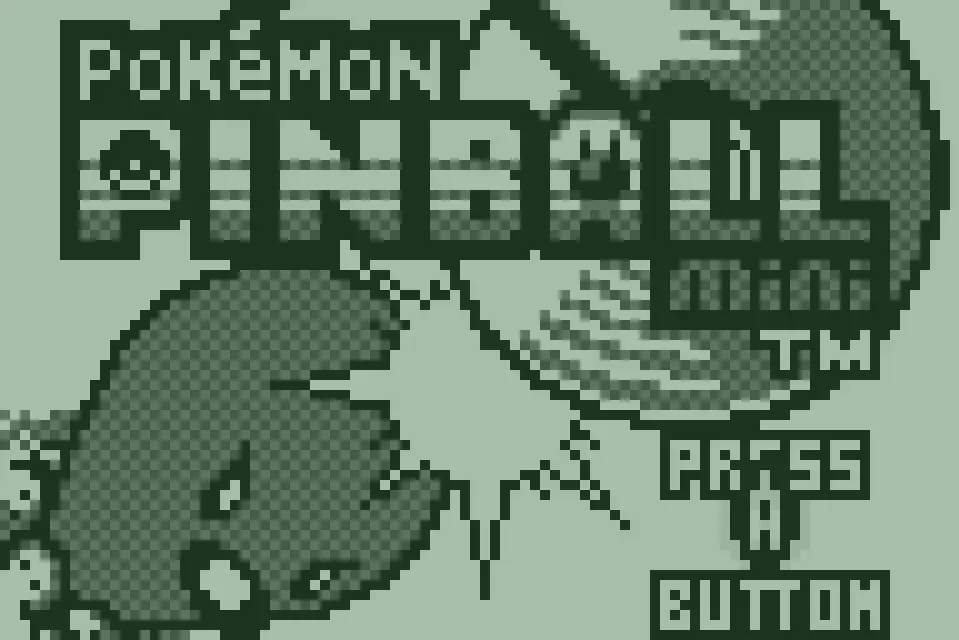
If you've gone through life thinking that the fabulously tiny Game Boy Micro is Nintendo's smallest-ever handheld, think again, dear reader. Because in 2001, the Mario makers released a neat little thing that was overlooked by many gamers, but nevertheless stands as a legitimate portable console: the Pokémon Mini.
While it looks like a Tamagotchi virtual pet with ideas above its station, the Pokémon Mini - released first in North America in November 2001 before arriving in Europe in March 2002 - is a Game Boy-like system that uses interchangeable cartridges, just like its bigger brothers and sisters in Nintendo's handheld range. And what's more, it included some connectivity features that not even the Game Boy Advance, released the same year, could boast of.

Advert
The Pokémon Mini (or mini, in lower-case, if we're using the system's stylised name) used infrared connectivity to enable local multiplayer options, on games that supported it - titles like the pack-in cartridge, Pokémon Party mini. This connectivity also allowed players to transfer their data, across as many as five consoles at once; and the console has both light vibration and basic motion control built in. Not bad for something that wouldn't just fit in most pockets, but get completely lost in them.
At just 74mm from top to bottom, and possessing an eye-stressing 96x64 monochromatic LCD screen (which was pretty sharp, at least), the Pokémon Mini sure is a fiddly little thing to mess around with if you've got hands larger than a child's. But while its official lifetime was rather short - the console was discontinued after a year, with only ten official games released for it - the Mini has enjoyed something of a homebrew scene in the years since its release (and you can find some of those projects at pokemon-mini.net).

But what about those ten games? Inevitably, given the Pokémon Mini wasn't really designed for prolonged play sessions, they're all relatively basic things - but not without their charm.
Advert
The aforementioned Party mini is a collection of seven mini-games, including 'Pikachu's Rocket Start' and 'Chansey's Dribble' (not quite as gross as it sounds). Pinball mini is, surprise, a pinball game; Pokémon Tetris is the system's Pokémon-themed version of the Game Boy puzzle classic, which mixes monster catching into its traditional line-clearing play; and Pokémon Puzzle Collection compiles a handful of, yep, puzzles.

Add Pokémon Zany Cards to the four above and you get all five games that ever came out in Europe. Japan, however, received a further five: Pokémon Race mini, Pokémon Puzzle Collection 2, Pokémon Breeder mini, Pichu Bros. Mini, and Togepi's Great Adventure. And that was that - Nintendo quietly put the Pokémon Mini to bed, presumably alongside the similarly unsuccessful Virtual Boy, and hasn't really said much about it since.
Pokémon Mini consoles were sold off in the years following its discontinuation for as little as five euros - but if you want to buy one today, a glance at ebay says you'll need to fork out more like £80 for a unit without any games, double its UK RRP at launch. Which... you're probably not about to do. But! If you made it this far, and never knew about the Pokémon Mini before, well, now you do. And knowledge is power - so in true Nintendo style, you'd best go play with it.
Advert
Enjoyed this little piece? Read another Flashback article, digging into video gaming's curious past: That Time Alan Sugar Took On SEGA, And Lost Spectacularly. Pokémon Mini screenshots used courtesy of MobyGames.com.
.Featured Image Credit: The Pokémon Company, NintendoTopics: Feature, Pokemon, Nintendo, Retro Gaming